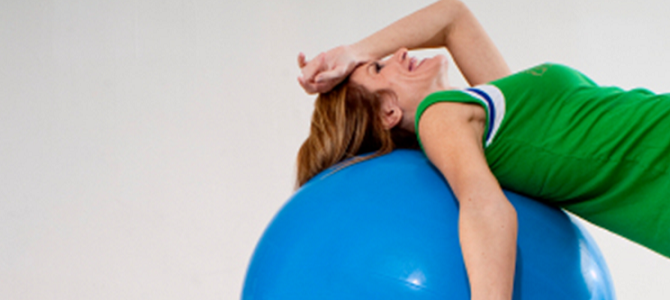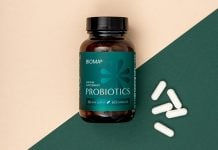
Hormones: Estrogen and Weight Loss
They can make you friggin’ crazy or just break down and cry. Not only can they make you irrational but as we age they really can be detrimental to your weight loss goals. This is especially true for women when it comes to estrogen and weight loss – plus there’s cortisol!
Do they cause weight gain? How can we fix it? Does estrogen and weight loss matter?
I’m definitely no expert on this topic so I turned to those who are in Part I of this series!
Estrogen and Weight Loss – How It Works
The first thing we need to briefly discuss when it comes to estrogen and weight loss, are the symptoms of estrogen or cortisol issues. Christine Khuri – certified integrative nutrition and fitness coach – helped us out with a quick list of symptoms:
Cortisol Issues
- Belly fat
- Feeling wired yet tired
- Sugar cravings
- Hard time falling asleep/disrupted sleep
- High blood pressure
- Loss of libido
- Cold hands & feet
- Fatigue in the afternoon
Estrogen Issues
- Bloating
- Water retention
- Painful periods
- Mood swings
- Sleeplessness
- Weeping
- Weight gain
- Depression
In this series, we won’t spend too much time on the symptoms instead I want to focus on correcting these issues. For more information on how cortisol affects the body click HERE. Let’s break down how estrogen and cortisol – we will cover testosterone in Part II – can affect our metabolism and weight loss and how we can help to naturally balance out these hormones! We asked each expert these questions:
- What are some natural ways to fix hormone imbalances such as estrogen or cortisol?
- Are there foods you can eat? Exercises to perform? Cleanses?
Foods to Avoid:
Caffeine
Why: Can raise cortisol levels – a culprit in waistline weight gain.
Replace With: a fruit smoothie made with fresh fruit, a scoop of protein powder, and some ground flaxseed to provide fiber, hormone-steadying protein, and omega-3 fatty acids.
Alcohol
Why: Can slow down your fat-burning mechanism.
Replace With: a glass of sparkling water in a pretty wine glass with a squeeze of lemon to hydrate instead of dehydrating.
Processed food
Why: Can be responsible for cravings and low energy.
Replace With: by including fermented foods with live cultures in their daily routine such as yogurt, sauerkraut, or tempeh. These foods contain beneficial bacteria that help to break down excess estrogen in our bodies and help with fat loss.
Refined foods
Replace With: refined carbohydrates such as white sugar, white flour, and stripped grains with fresh fruits and vegetables and whole grains to burn off excess abdominal fat with calcium, maintain calorie-burning muscle with vitamin D, and decrease insulin resistance while increasing weight loss with magnesium.
Via Jennifer Cohen Katz RD LDN, the Culinary Nutritionist at Fresh Balance Nutrition
Four Tools for Success
By: Jason Prall – Head Nutrition Coach, Elite Training Programs
There are many natural things one can do to fix hormone imbalances, even in middle-aged or older populations. As a functional nutritionist, I run lots of lab work to test hormone balance, cortisol rhythm, liver function, gastrointestinal function, thyroid function, as well as genetic SNPs [single-nucleotide polymorphism].
Diet
The absolute most important thing is to naturally balance hormones. Because the body and its systems are all connected, what we eat affects the entirety of our system. Our bodies make our primary stress hormones and steroid hormones from a combination of B vitamins and fat.
Beyond that, obviously if one is eating a poor diet that is causing inflammation, the body must respond by elevating cortisol levels and turning up the immune response which throws the body further out of balance.
Cleanses
If the liver is functioning poorly, clogged, and/or phase 1 and phase 2 detoxification are not balanced, a build-up of toxins will occur in the body, tending to result in hormonal imbalance via the pregnenolone steal. Secondly, the liver is responsible for clearing and detoxifying hormone metabolites (the byproduct of used hormones).
If these cannot be cleared due to poor liver and/or gall bladder function, hormonal imbalance occurs.
Exercise
Rest, yoga, meditation can be great ways to ease the stress burden in order to balance hormones. At the same time, in other populations, it can be helpful to perform heavy resistance training or burst training in order to increase and optimize the anabolic hormones, like testosterone.
Studies show this to be the case.
Natural Supplementation
There are many natural supplements that can assist hormone production and hormone balance. Perhaps the biggest catch-all products are adaptogenic herbs like ashwagandha, astragalus, Rhodiola, and ginseng. Adaptogens tend to upregulate pathways that need it and down-regulate pathways that need that. They naturally balance, restore, and protect the body…pretty amazing really.
Other plants that can be helpful are licorice root, which extends the half-life of your body’s endogenous cortisol.
Maca is known to stimulate hormone production, increase fertility, and help hypothyroidism all because it stimulates the hypothalamus and pituitary which are the “master glands” when it comes to hormone production.
I could go on and on, but the bottom line is that diet, rest, exercise, stress reduction, and supplements can all help hormonal balance.
Symptoms and Supplements
By: Michael Spitzer – Author of Fitness At 40, 50, 60 and Beyond

In the years leading up to menopause, the female body’s normal levels of estrogen and progesterone begin to fluctuate in an irregular fashion. Some medical professionals use the analogy of an engine beginning to “sputter” in the last few minutes before it shuts down.
Because of these hormonal changes, most women experience a number of symptoms during this time. Most women experience these symptoms of perimenopause and premenopause between the ages of 43 – 55. The most commonly reported symptoms include the following:
Mood Changes
Irritability, impatience, or increased risks of depression are sometimes experienced during this time.
A woman may realize she is not responding normally to minor life stresses, yet still struggle with her feelings and reactions.
Loss of Bone
Although both men and women suffer from bone loss with age, women are more prone to osteoporosis. The rate of bone loss is proportional to the decline of estrogen in women.
It is, for this reason, you will see so many advertisements for Calcium and Vitamin D aimed at women.
Changing Cholesterol Levels
Although not commonly known, the decline of estrogen can also change the relative ratios of blood cholesterol levels. With lower estrogen, it is common to see an increase in unhealthy low-density lipoproteins (LDL). Likewise, the healthy high-density lipoproteins (HDL) levels often decrease. This change helps to explain why heart attack becomes more common in older women.
Other Symptoms Include: Decreased fertility, menstrual irregularity, bladder problems, changes in sexual function, hot flashes, and sleep problems
Supplements
The following list of supplements has proven popular in recent years. Many women claim products containing these compounds help alleviate many of the unpleasant symptoms described above – symptoms that are normally linked and attributed to the premenopausal years.
- Diindolylmethane (DIM)
- Vitamin E
- Natural phytoestrogen and natural progesterone USP
DIM is the main ingredient found in most of the health food supplements now advertised to help support a healthy balance of hormones in women. Research has shown that DIM seems to work as an “estrogen balancer”. By balancing estrogen and minimizing the excess accumulation of estradiol, DIM is also believed to help offset symptoms such as easier weight gain, moodiness, and breast pain.
Natural phytoestrogen and natural progesterone USP are found in a number of special-purpose lotions. These formulations claim to help the body maintain a healthy estrogen/progesterone balance and ward off estrogen dominance.
As with many natural remedies, you will find an equal number of supporters and detractors to the benefits of the above supplements… This may be a case where the reader will need to reach their own conclusions based on personal experience.

Even with all this information and helpful tips in mind, I should make one comment:
In over 35+ years, working with scores of people aged 35 to 85, I have never seen a case yet where the combination of a lean protein/complex carb diet + weight resistance training + some cardio activity at least 3 times per week did not result in successful weight loss and better mobility, flexibility, and vitality.
The reality is when it comes to hormones like estrogen and weight loss, far too many people just don’t follow thru or stay consistent, and/or they expect some miracle supplement or pill to magically do things for them.
That does not work and probably never will since it defies science facts and physiology.
Wrap-Up
If these issues (like estrogen and weight loss) are plaguing you, see your doctor and get a full rundown of your hormonal profile from which they can help determine a diet best suited to meet your goals.
In the end it seems it’s all about taking control of your diet, stress, sleep, and exercise routine to get the results you want.
If you work hard, watch your diet, and have patience you WILL get results! So we just discussed estrogen and weight loss, in Part II we will discuss how to improve testosterone imbalances with a first-hand account!
- Post-Workout Meal: Getting the Most from Your Workout - January 22, 2024
- 6 Ab Exercises To Blast Your Core - December 17, 2023
- 10 Office Exercises You Can Do To Burn Calories - November 19, 2023


